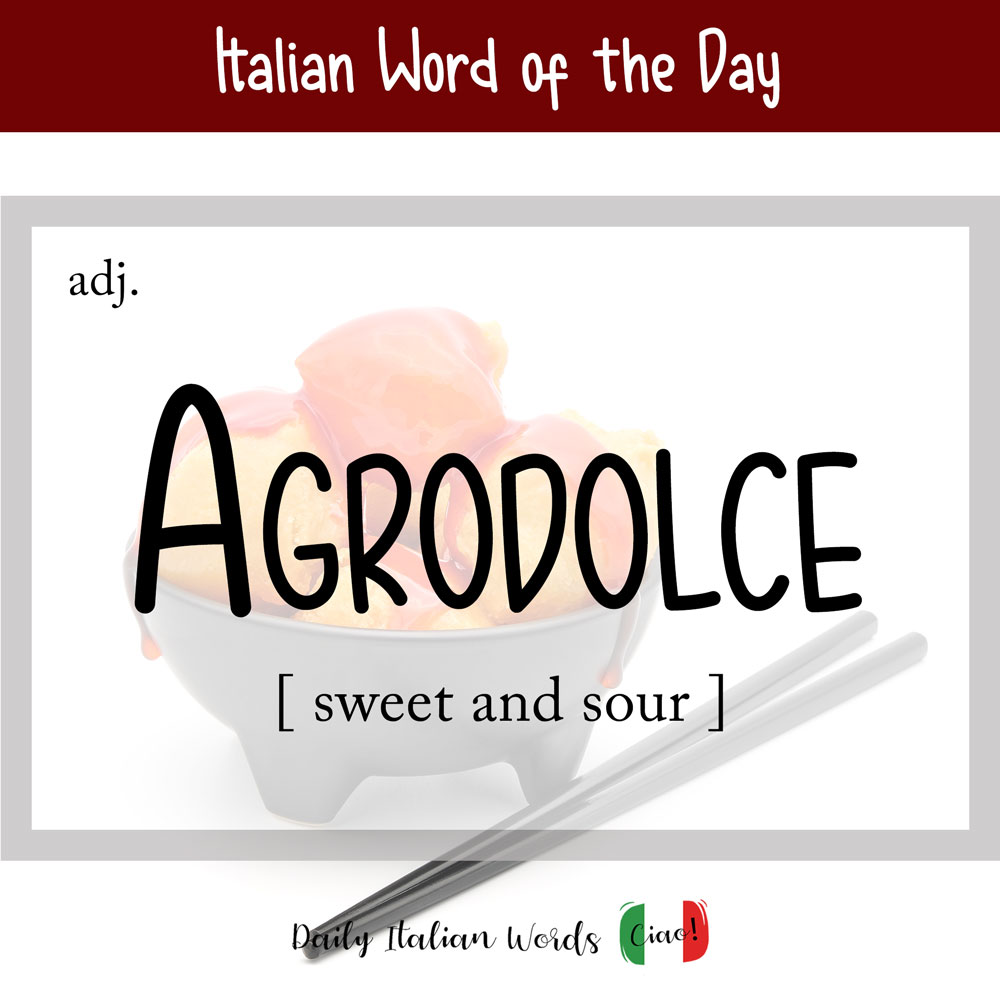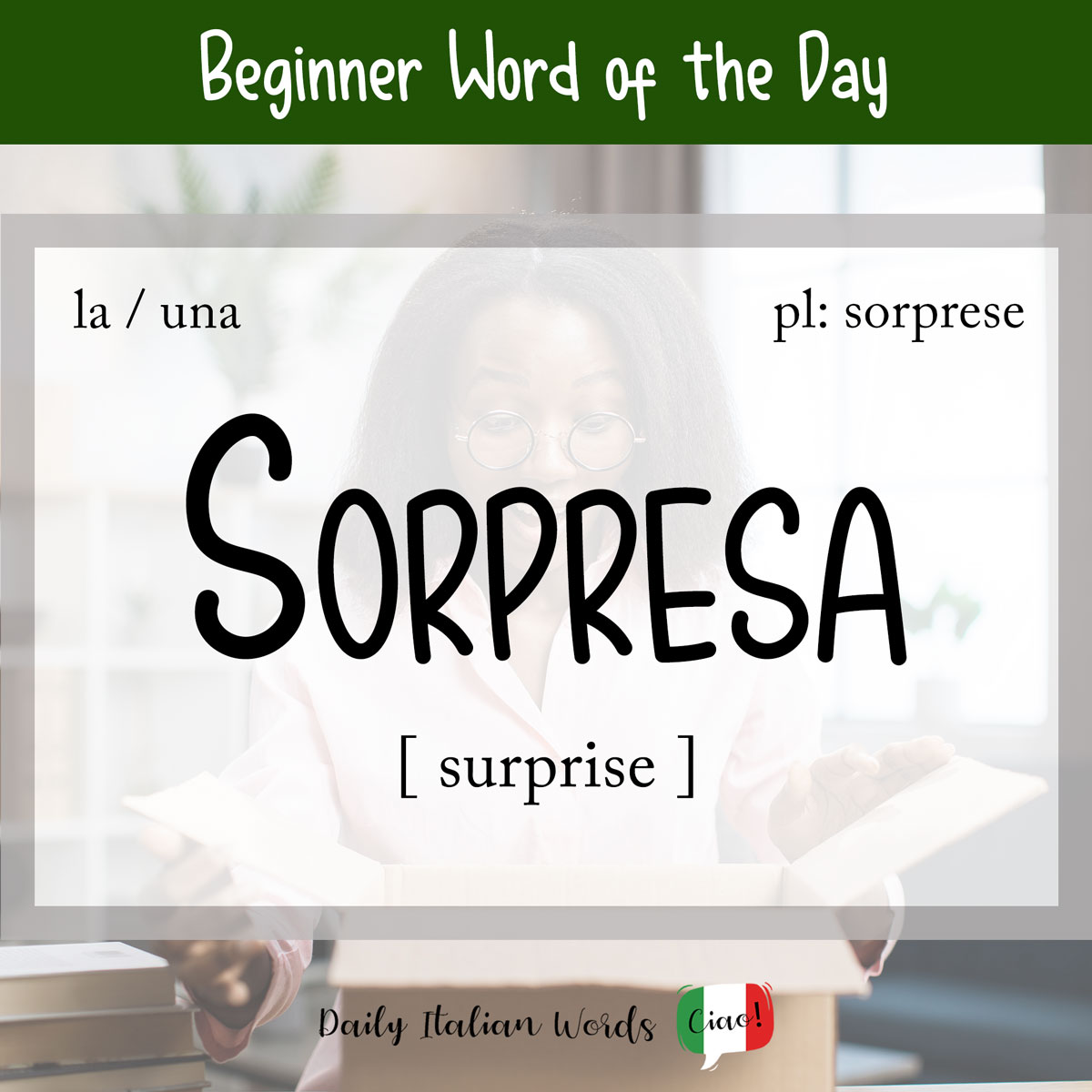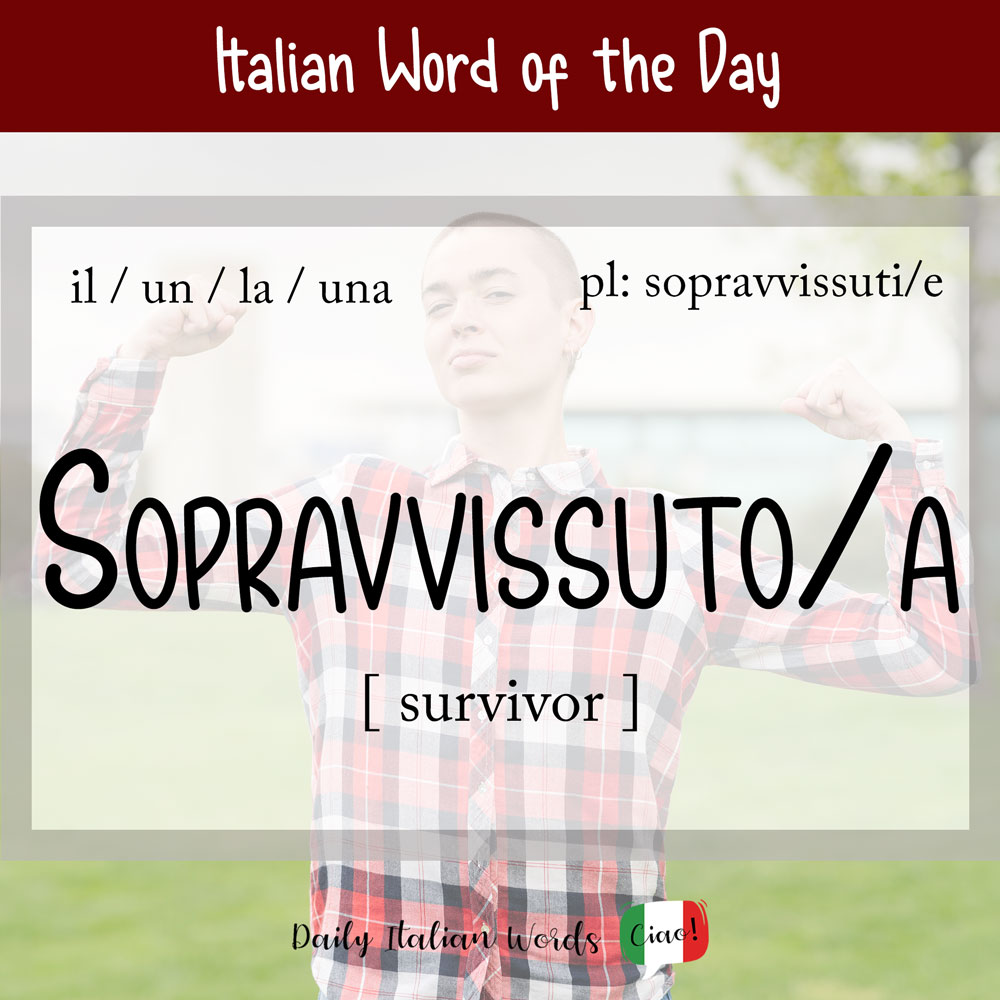Italian Word of the Day: Agrodolce (sweet and sour)
The Italian translation for sweet and sour, as in a sweet food or drink with a sour aftertaste produced by vinegar or lemon, is agrodolce. Derived from the French aigre-doux, it is a combination of the words agro (tart, sour) and dolce (sweet). A very popular sauce in Italy is salsa agrodolce, a traditional sweet-and-sour …






